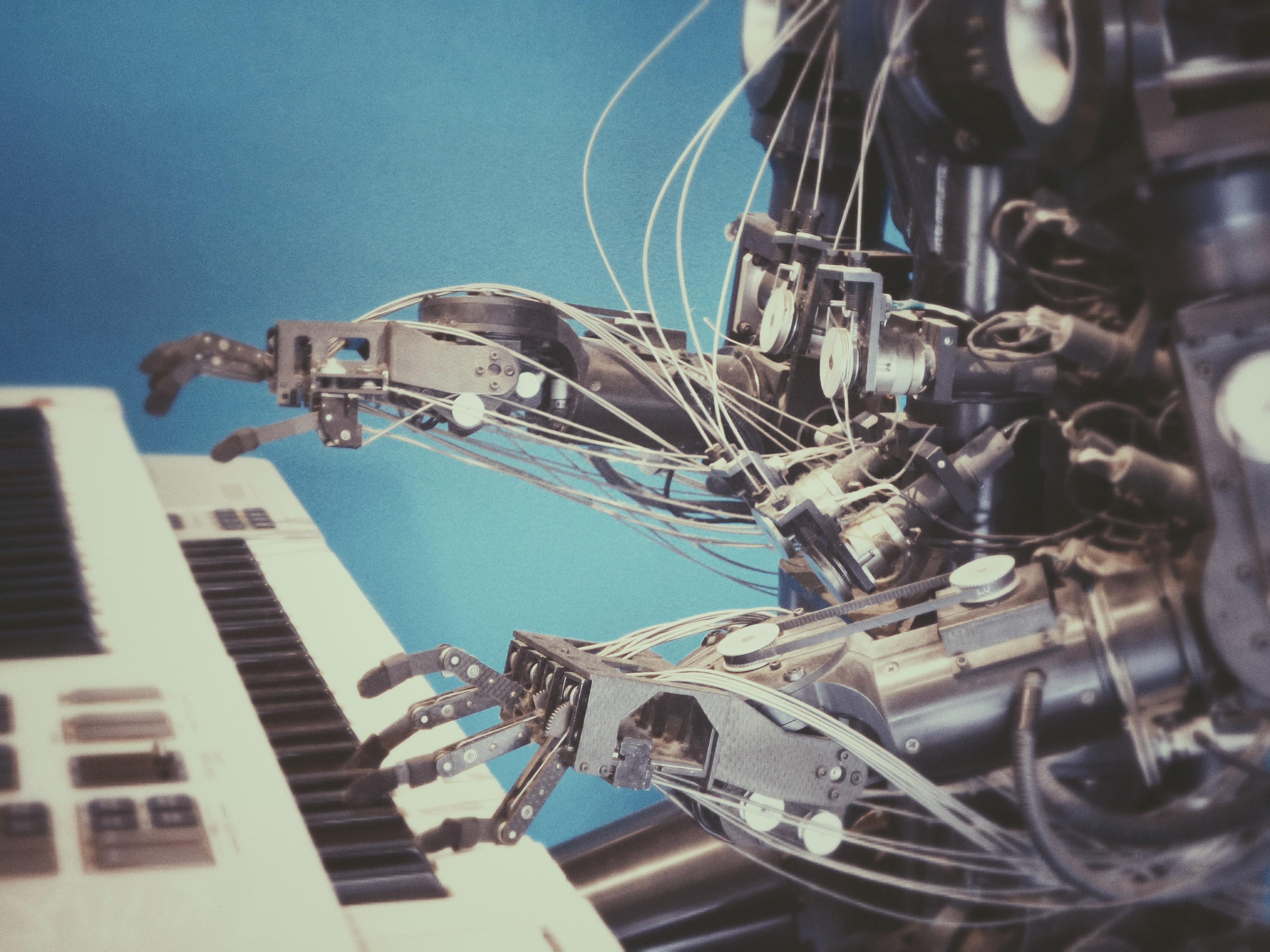
AI Uncovered: An In-Depth Look at AI and Its Types
AI Uncovered: An In-Depth Look at AI and Its Types
AI Uncovered: An In-Depth Look at AI and Its Types
Nov 15, 2023


If you've heard about artificial intelligence but found it complex, this post is for you.
AI is like a clever toolbox that helps computers mimic human intelligence. Just as we learn from experience, AI systems learn from data. They can recognize patterns, solve problems, and make decisions.
The Beginning and the Present
AI isn't a new concept. It traces back to the 1950s when a group of ambitious scientists began to ask, "Can we build a machine that can think?" This curiosity laid the groundwork for what we know as AI today.
Early AI systems, developed around the 1950s, were limited in their capabilities and could only perform simple tasks, such as playing games like tic-tac-toe. Christopher Strachey, who later became the director of the Programming Research Group, wrote one of the earliest successful AI programs in 1951. This program was designed to play checkers, a relatively simple game regarding rules and possible moves.
Another example was Theseus, a robotic mouse Claude Shannon developed in 1950 to navigate a maze, demonstrating the ability of an AI system to solve a specific type of problem.
Today, AI can recommend your next favorite song or assist doctors in diagnosing diseases. With the current data flood, AI offers a savvy way to interpret, identify the crucial parts, and use that information to improve our lives. But remember, AI is a tool, and its impact depends on how we use it.
Some Types of AI
Reactive Machines
As the most basic form of AI systems, reactive machines can't form memories or use past experiences to inform current decisions. They react to the task at hand and nothing more. IBM's Deep Blue, a chess-playing AI, is a prime example of a reactive machine. It doesn't learn from past games but analyzes all possible moves and chooses the most strategic.
Limited Memory
These AI systems learn from historical data to make decisions, a step up from reactive machines. Self-driving cars are a classic example of limited-memory AI. They observe other cars, store this data, and use it to make decisions.
Theory of Mind
This advanced type of AI is still being developed. Such AI systems would understand and interpret human thoughts and emotions, allowing them to interact socially like humans. Future applications could include autonomous cars that understand and predict the behaviors of human drivers and pedestrians.
Language Models
Another meaningful area in AI is Language Models. These systems are trained on vast amounts of text data, enabling them to generate human-like text based on a given input. If you've ever used autocorrect or predictive text on your phone, you've interacted with a language model!
They're also used in chatbots and virtual assistants, enabling these systems to understand and respond to user inquiries in a natural, human-like way. Moreover, they're deployed in content generation and automation tasks, where they can generate articles, write reports, or create other forms of written content.
Discover the Power of AI with Aivia
Artificial intelligence has transformed the way businesses operate by automating complex tasks, improving efficiency, and offering insightful data analysis. Aivia incorporates these AI capabilities to provide cutting-edge solutions tailored to business needs.
Whether you're aiming to streamline your operations or looking to integrate AI into your business model, Aivia offers an intuitive platform to help you leverage the power of AI. Join us and experience the remarkable capabilities of AI!
If you've heard about artificial intelligence but found it complex, this post is for you.
AI is like a clever toolbox that helps computers mimic human intelligence. Just as we learn from experience, AI systems learn from data. They can recognize patterns, solve problems, and make decisions.
The Beginning and the Present
AI isn't a new concept. It traces back to the 1950s when a group of ambitious scientists began to ask, "Can we build a machine that can think?" This curiosity laid the groundwork for what we know as AI today.
Early AI systems, developed around the 1950s, were limited in their capabilities and could only perform simple tasks, such as playing games like tic-tac-toe. Christopher Strachey, who later became the director of the Programming Research Group, wrote one of the earliest successful AI programs in 1951. This program was designed to play checkers, a relatively simple game regarding rules and possible moves.
Another example was Theseus, a robotic mouse Claude Shannon developed in 1950 to navigate a maze, demonstrating the ability of an AI system to solve a specific type of problem.
Today, AI can recommend your next favorite song or assist doctors in diagnosing diseases. With the current data flood, AI offers a savvy way to interpret, identify the crucial parts, and use that information to improve our lives. But remember, AI is a tool, and its impact depends on how we use it.
Some Types of AI
Reactive Machines
As the most basic form of AI systems, reactive machines can't form memories or use past experiences to inform current decisions. They react to the task at hand and nothing more. IBM's Deep Blue, a chess-playing AI, is a prime example of a reactive machine. It doesn't learn from past games but analyzes all possible moves and chooses the most strategic.
Limited Memory
These AI systems learn from historical data to make decisions, a step up from reactive machines. Self-driving cars are a classic example of limited-memory AI. They observe other cars, store this data, and use it to make decisions.
Theory of Mind
This advanced type of AI is still being developed. Such AI systems would understand and interpret human thoughts and emotions, allowing them to interact socially like humans. Future applications could include autonomous cars that understand and predict the behaviors of human drivers and pedestrians.
Language Models
Another meaningful area in AI is Language Models. These systems are trained on vast amounts of text data, enabling them to generate human-like text based on a given input. If you've ever used autocorrect or predictive text on your phone, you've interacted with a language model!
They're also used in chatbots and virtual assistants, enabling these systems to understand and respond to user inquiries in a natural, human-like way. Moreover, they're deployed in content generation and automation tasks, where they can generate articles, write reports, or create other forms of written content.
Discover the Power of AI with Aivia
Artificial intelligence has transformed the way businesses operate by automating complex tasks, improving efficiency, and offering insightful data analysis. Aivia incorporates these AI capabilities to provide cutting-edge solutions tailored to business needs.
Whether you're aiming to streamline your operations or looking to integrate AI into your business model, Aivia offers an intuitive platform to help you leverage the power of AI. Join us and experience the remarkable capabilities of AI!
If you've heard about artificial intelligence but found it complex, this post is for you.
AI is like a clever toolbox that helps computers mimic human intelligence. Just as we learn from experience, AI systems learn from data. They can recognize patterns, solve problems, and make decisions.
The Beginning and the Present
AI isn't a new concept. It traces back to the 1950s when a group of ambitious scientists began to ask, "Can we build a machine that can think?" This curiosity laid the groundwork for what we know as AI today.
Early AI systems, developed around the 1950s, were limited in their capabilities and could only perform simple tasks, such as playing games like tic-tac-toe. Christopher Strachey, who later became the director of the Programming Research Group, wrote one of the earliest successful AI programs in 1951. This program was designed to play checkers, a relatively simple game regarding rules and possible moves.
Another example was Theseus, a robotic mouse Claude Shannon developed in 1950 to navigate a maze, demonstrating the ability of an AI system to solve a specific type of problem.
Today, AI can recommend your next favorite song or assist doctors in diagnosing diseases. With the current data flood, AI offers a savvy way to interpret, identify the crucial parts, and use that information to improve our lives. But remember, AI is a tool, and its impact depends on how we use it.
Some Types of AI
Reactive Machines
As the most basic form of AI systems, reactive machines can't form memories or use past experiences to inform current decisions. They react to the task at hand and nothing more. IBM's Deep Blue, a chess-playing AI, is a prime example of a reactive machine. It doesn't learn from past games but analyzes all possible moves and chooses the most strategic.
Limited Memory
These AI systems learn from historical data to make decisions, a step up from reactive machines. Self-driving cars are a classic example of limited-memory AI. They observe other cars, store this data, and use it to make decisions.
Theory of Mind
This advanced type of AI is still being developed. Such AI systems would understand and interpret human thoughts and emotions, allowing them to interact socially like humans. Future applications could include autonomous cars that understand and predict the behaviors of human drivers and pedestrians.
Language Models
Another meaningful area in AI is Language Models. These systems are trained on vast amounts of text data, enabling them to generate human-like text based on a given input. If you've ever used autocorrect or predictive text on your phone, you've interacted with a language model!
They're also used in chatbots and virtual assistants, enabling these systems to understand and respond to user inquiries in a natural, human-like way. Moreover, they're deployed in content generation and automation tasks, where they can generate articles, write reports, or create other forms of written content.
Discover the Power of AI with Aivia
Artificial intelligence has transformed the way businesses operate by automating complex tasks, improving efficiency, and offering insightful data analysis. Aivia incorporates these AI capabilities to provide cutting-edge solutions tailored to business needs.
Whether you're aiming to streamline your operations or looking to integrate AI into your business model, Aivia offers an intuitive platform to help you leverage the power of AI. Join us and experience the remarkable capabilities of AI!

Try 14 Days for Free
Start